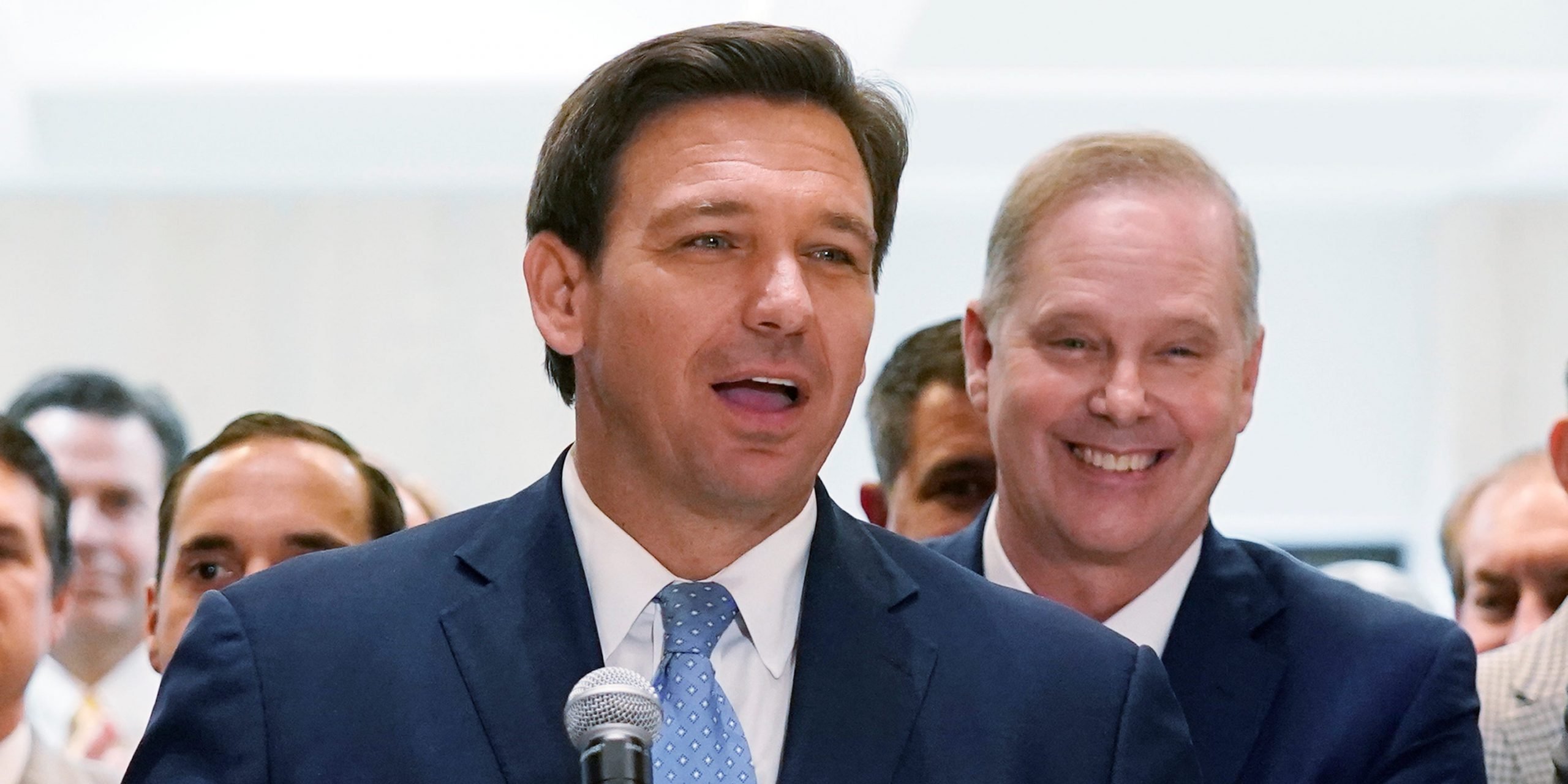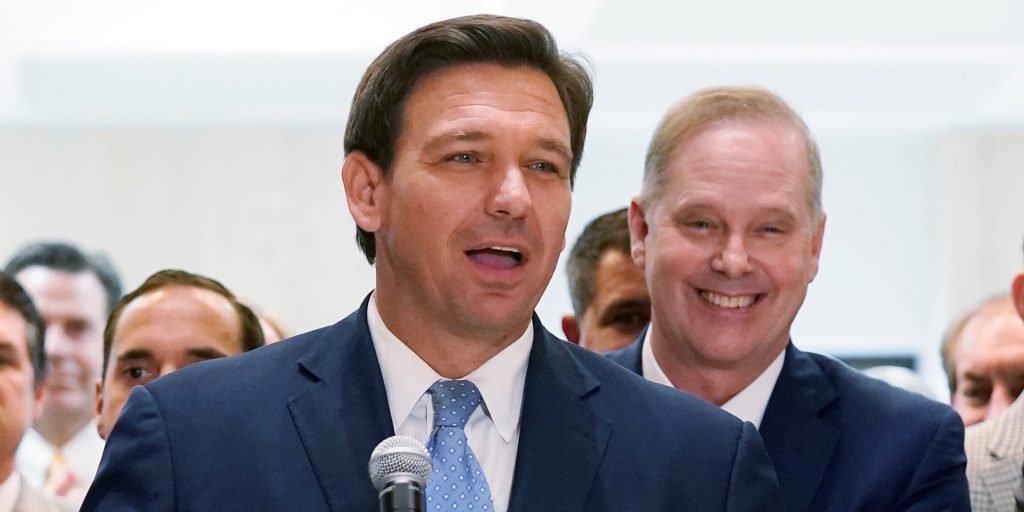
AP Photo/Wilfredo Lee, File
- The Florida Board of Education voted Thursday to adopt a rule that would ban critical race theory in state classrooms.
- Gov. Ron DeSantis voiced his hopes to prevent students from learning a "false history."
- Critical race theory is a framework that acknowledges "racism is not a bygone relic of the past."
- Visit Insider's homepage for more stories.
The Florida Board of Education unanimously voted to adopt a rule Thursday that would ban the teaching of critical race theory in state classrooms.
The new rule comes with approval from Republican Gov. Ron DeSantis, who has been a vocal critic of the framework and who spoke to the board at the start of Thursday's meeting, telling them he doesn't want to stop children from being taught about slavery or civil rights but hopes to prevent them from learning a "false history" that would "denigrate the Founding Fathers," The Orlando Sentinel reported.
The decision makes Florida one of the largest school systems yet to conform to conservative attempts to ban critical race theory, which has become a flashpoint for GOP outrage over the racial history being taught in public schools.
Many critics of the framework view the term as a sweeping set of educational programs they believe teaches American history through a "toxic," anti-racism lens.
"I think it's going to cause a lot of divisions," DeSantis said on Thursday. "I think it'll cause people to think of themselves more as a member of a particular race based on skin color, rather than based on the content of their character and based on their hard work and what they're trying to accomplish in life."
But the reality of critical race theory is much more nuanced, dating back more than 40 years.
Legal scholar Kimberlé Crenshaw coined the term as a loosely organized framework of legal analysis that "recognizes that racism is not a bygone relic of the past," according to the American Bar Association.
The academic concept acknowledges the role slavery and segregation played in the current situation of Black Americans and other people of color and purports that racism is not simply the product of individual prejudice but a tenet embedded in institutions.
Critical race theory is not something that was previously or currently being taught in Florida schools and its inclusion in Thursday's rule was a late-meeting amendment, according to The Sentinel.
All seven members of the state education board were appointed by either DeSantis or his predecessor, Republican Rick Scott, who now serves as one of the state's US Senators. Earlier this year, Scott introduced a Senate resolution which says that "efforts to indoctrinate" critical race theory into schools are meant to "eventually transform the United States by stigmatizing its economic system and creating a hatred of all its institutions."
A similar phrase in Florida's new rule irked some teachers who, according to the rule must "serve as facilitators for student discussion and do not share their personal views or attempt to indoctrinate or persuade students to a particular point of views."
According to The Sentinel, the Florida Education Association said the wording was insulting to educators who do not "indoctrinate" their students.
Gregory Sampson, a high school teacher in Jacksonville, told the outlet he thinks DeSantis is using critical race theory as a rallying point among conservatives as he considers a possible presidential run in 2024.
"I don't think the governor and his fellow Republicans really understand what critical race theory does," he told The Sentinel. "It's not a criticism. It's a critique, a way of looking at how history has unfolded."
Florida's new rule would also ban any suppression or distorting of historical events like the Holocaust, slavery, the Civil War and Reconstruction, the civil rights movement, and the contributions of women, African Americans, and Hispanic people to the country.
The rule also specifically targets The New York Times's 1619 Project - another initiative that sparked conservative condemnation - barring the use of its premises or conclusions as teaching material.
At least 15 other states are considering or have already signed bills into law that would target the way schools teach American history, according to NBC News.
